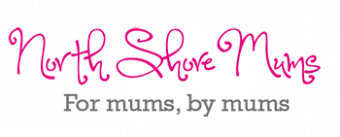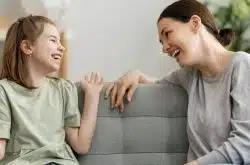In a world buzzing with opinions and change, parents play an important role in helping kids to critically engage and shape their future. Discover some practical ways you can dive into civic life as a family, shaping your kids into informed, active citizens. It’s time to make a lasting impact.
In today’s fast-changing, opinion-driven society, it is more important than ever for parents to equip their children with the skills they need to think critically about the world around them and understand what they can do to help make the changes that they want to see.
Studies show that young people who are engaged in civic life through volunteering, community groups and politics don’t just feel more connected to their communities and society; they also tend to achieve better socio-economic outcomes in the long term.
Luckily, in Australia, there are plenty of opportunities for families to get involved in civic life.
Five ways to help raise good citizens
1. Attend a community event
Community events are a great way to bond with others in your local area and learn more about the interests and concerns that you share. Councils, libraries and community interest groups tend to organise regular meet-ups on topics as wide-ranging as native wildlife, composting, languages, knitting and art.
Local councils, State and Federal MPs often send out regular event listings. You can sign up for weekly updates from Kylea Tink MP, Independent Federal Member for North Sydney.
2. Volunteer with a local community group
Does your child have a particular interest in animals, cooking, a sport, politics, or the environment? There are several charities and local community groups that they can get involved in, including:
- Kids Giving Back: A youth-oriented organisation offering volunteering opportunities that encourage empathy and community service among young Australians.
- KT NextGen: Young Australians aged 16 and up can get involved in KT NextGen, a volunteer group that meets to discuss politics, advocates for issues that are important to young people, and liaises with Independent Federal Member for North Sydney, Kylea Tink.
- NORTH Foundation: An organisation committed to supporting healthcare initiatives, research, and community health projects, offering a range of volunteer opportunities for those interested in making a difference in healthcare and community wellbeing.
- Animal Welfare North Shore: A charity dedicated to animal care and protection, offering volunteer opportunities for animal-loving youths to contribute to animal welfare activities.
3. Stay informed about the big issues
Healthy democracies rely on citizens being able to understand what they are voting on and push politicians towards the changes they want to see.
When women wanted the right to vote back in 1902, they had to demand it. The same principles apply today. Want more parental leave? Cheaper childcare? Affordable housing? Stronger advertising laws? It’s up to us to stay on top of current affairs and form our own opinions about the world we want to help shape for our kids.
While we all want to shield our children from the nastier side of news and politics, there are several information sources that cater specifically to a younger audience. ABC’s Behind the News is one such option that your child may already be familiar with from school. Ask them what they think about something you’ve seen in the news recently — they may surprise you!
4. Have your say

It’s never too early to use your voice. Companies, politicians, authors, and the like often say the best letters they receive are from the youngest children. If your child is particularly passionate about an issue, encourage them to do something about it — find someone who is responsible for helping and write them a letter. (Bonus: It’s a great writing exercise too!)
Children benefit from seeing their parents exercise their democratic rights. So take them with you to the voting booth (you can’t go wrong with a democracy sausage), MP meet-and-greets and other issues-based forums. There are also family-focused advocacy groups like Parents for Climate, where like-minded, politically active families can share their thoughts and experiences.
Older children may like to get involved in politics directly by participating in Youth Forums. The North Sydney Electorate Office hosts a Youth Forum that brings together two representatives from each secondary school in the area. These students meet with Federal MP Kylea Tink three times a year to discuss their top issues, and workshop potential solutions.
5. Talk to people about issues that matter to you!
Politics is not a dirty word. In a healthy democracy, people should be able to rationally discuss their views and concerns, so that they may work towards the best outcomes for all.
While we may come from different backgrounds, with different experiences and world views, it is this diversity of opinion that often produces the best solutions.
In the words of North Sydney’s first Independent MP, Ted Mack:
“The very basis of democracy is that a decision taken by the public as a whole will be right more often than decisions taken by an elite group.”
🖇 This sponsored post is brought to you by Kylea Tink Independent Federal Member for North Sydney. North Shore Mums does not have any political affiliations.
🖇 Authorised by Kylea Tink. Level 10, 2 Elizabeth Plaza, North Sydney NSW 2060.














